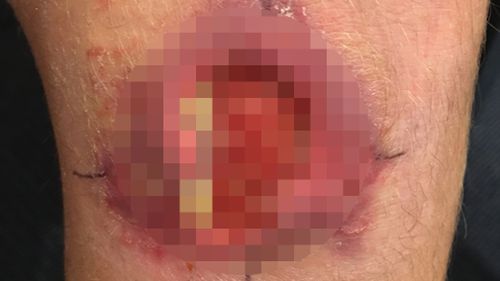Share this @internewscast.com
A warning has been issued to NSW residents after a rare and exotic flesh-eating condition, Buruli ulcer, was detected the state’s south.
Buruli ulcer is a skin infection that results from the bacteria Mycobacterium ulcerans. This bacterium can cause damage to the skin and bones, potentially causing permanent disfigurement and long-term disabilities.
There have only been three cases in the state between 2021 and 2023, but a fourth has just been confirmed in the Eurobodalla region, south-east of Canberra.

Buruli ulcer is within the same family of germs that cause tuberculosis and leprosy.
It begins with painless swelling typically on the arms and legs and can progress without pain or fever. In many cases, it may not even appear until four to five months or longer after exposure.
How the infection is transmitted is still unknown but it is not believed to be contagious.
The infection can be treated with antibiotics and is curable but early intervention and diagnosis is important to minimise the damage caused.
According to the World Health Organisation, Buruli ulcer has been reported in 33 countries in Africa, the Americas, Asia and the Western Pacific.
Most cases have been reported in tropical and subtropical regions except for Australia and Japan.

















